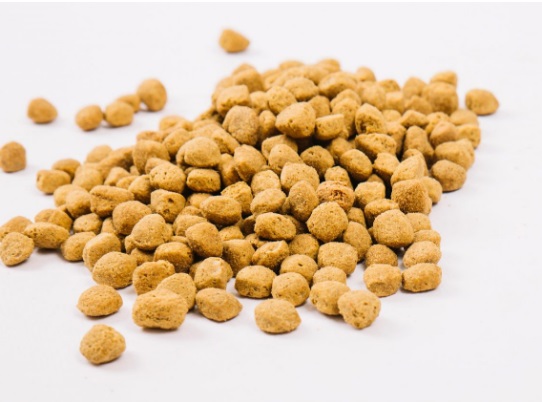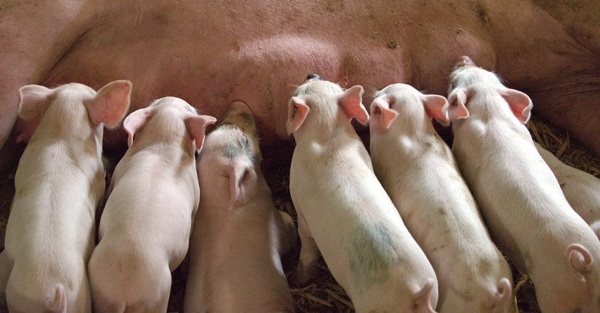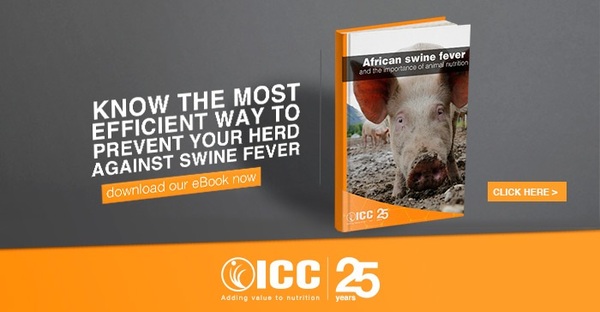The Role of Animal Nutrition in Cases of Swine Fever
Published: May 22, 2019
Source : ICC Brazil

Transmitted through contaminated food remains, disease can be prevented by measures that include adequate animal nutrition and management
Animal production, such as pig farming, is of great economic importance to many countries around the world. This type of activity is directly influenced by several factors, such as food, nutrition, management, sanity, ambience, well-being, genetics among others.
THE IMPORTANCE OF ANIMAL NUTRITION
Animal feed is considered a major factor in intensive production and accounts for about 70-75% of the total cost of production. Thus, obtaining profits requires an appropriate combination of ingredients to make nutritionally balanced diets for each stage of production, in order to meet the specific nutritional requirements of each one.
Another element of fundamental importance for the nutrition of the creations is the supply of drinking water in the quantity necessary for these animals.
Adequate, balanced nutrition meets the basic needs of animals, minimizes the risk of nutritional deficiencies, prevents poisoning, and increases resistance (immunity) to disease.

The ingredients that make up animal nutrition should be able to supply their nutritional requirements and provide support for the cells and microbiota of the gastrointestinal tract to perform their functions. This results in a maximum efficiency of digestion and absorption of the nutrients and, consequently, contributing to the health and performance of the animals and increasing the profitability of the producers.
AGENTS THAT INFLUENCE SWINE HEALTH
It is also worth remembering that production animals, such as pigs, are constantly exposed to agents that directly influence their health and performance and that several other factors can raise the stress level of these animals, increasing energy expenditure and decreasing the response immune, making them more vulnerable to disease.
Intestinal bacteria live in balance and directly affect the health of animals. However, “stressors” such as environmental factors, toxins and chemicals can lead to an imbalance of the microbiota. This process facilitates the invasion of microorganisms and toxic substances into the bloodstream, causing changes in digestion and absorption of nutrients.
A SWINE FEVER
Swine fever, a disease that affects domesticated and feral pigs (wild boars and crosses with domestic pigs), is spread by the Asfivirus virus, which is considered to be very resistant and can survive in a wide range of temperatures and pH (4 to 10), not being inactivated by chilling of the meat.
One of the forms of transmission of African Swine Fever (PSA) is through direct contact between susceptible or infected pigs (domestic or wild) or through ingestion of products contaminated with the virus. Thus, the nutrition of pigs is directly linked to the contagion of the disease and, consequently, to the control of swine fever.
HEALTH CONTROL WITH ANIMAL NUTRITION
Currently, the market prioritizes the reduction of agents that promote growth in animal production, such as antibiotics, and opts for safe and quality food. Thus, the importance of food additives in controlling the intestinal health of animals is increasing.
There are some alternatives on the market for the control of pathogenic bacteria, such as products that act on the ration or that act in the animal organism. Each product has different forms of action directly or indirectly interfering in the health and response of the immune system of the animals.
Unicellular fungi, especially of the genus Sacharomyces, yeast-based additives have been used as additives in feed supplements for animals.
The stimulation of the innate immune system and the fight against infections as well as the elimination of pathogenic bacteria, toxins and viruses by the intestine are also benefits provided through yeast.
Therefore, yeast-based additives used in food supplements for pigs have been studied and used as a way to increase the immunity of animals, as well as their food safety and, consequently, to combat diseases such as swine fever.
Source
ICC BrazilRelated topics
Join to be able to comment.
Once you join Engormix, you will be able to participate in all content and forums.
* Required information
Would you like to discuss another topic? Create a new post to engage with experts in the community.
Create a post





.jpg&w=3840&q=75)